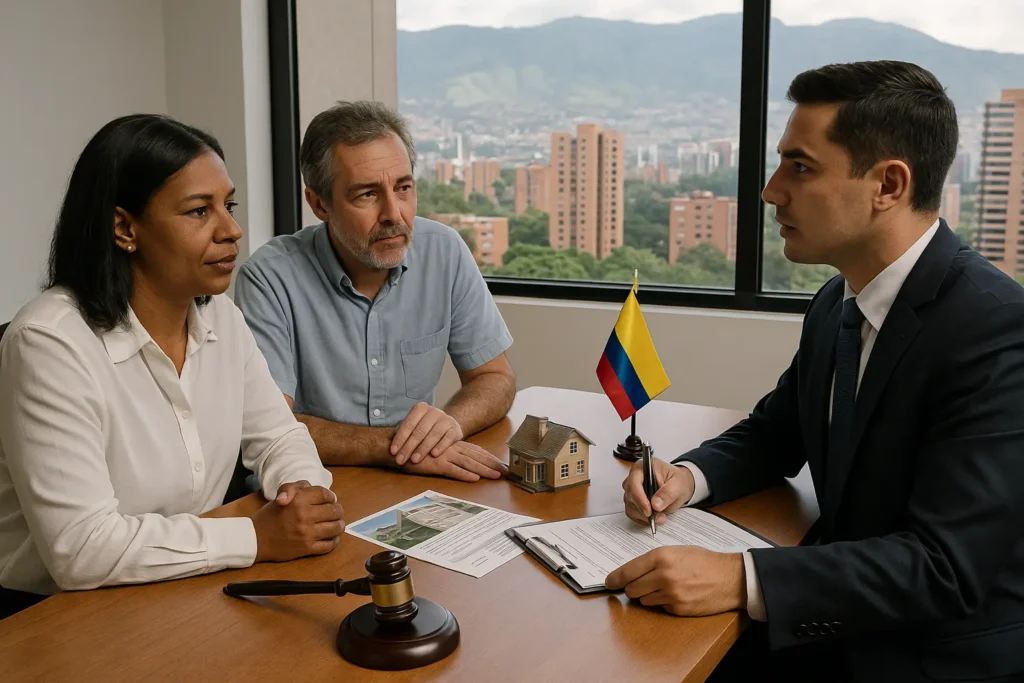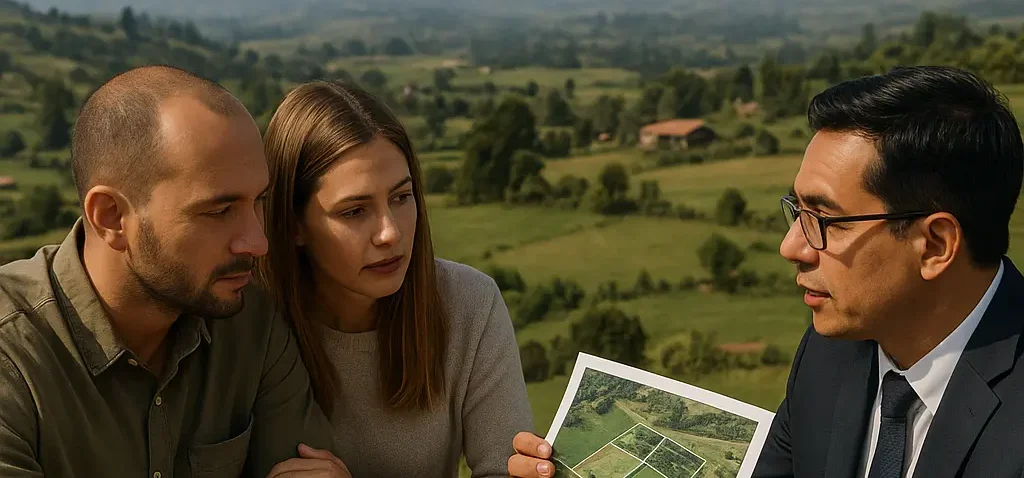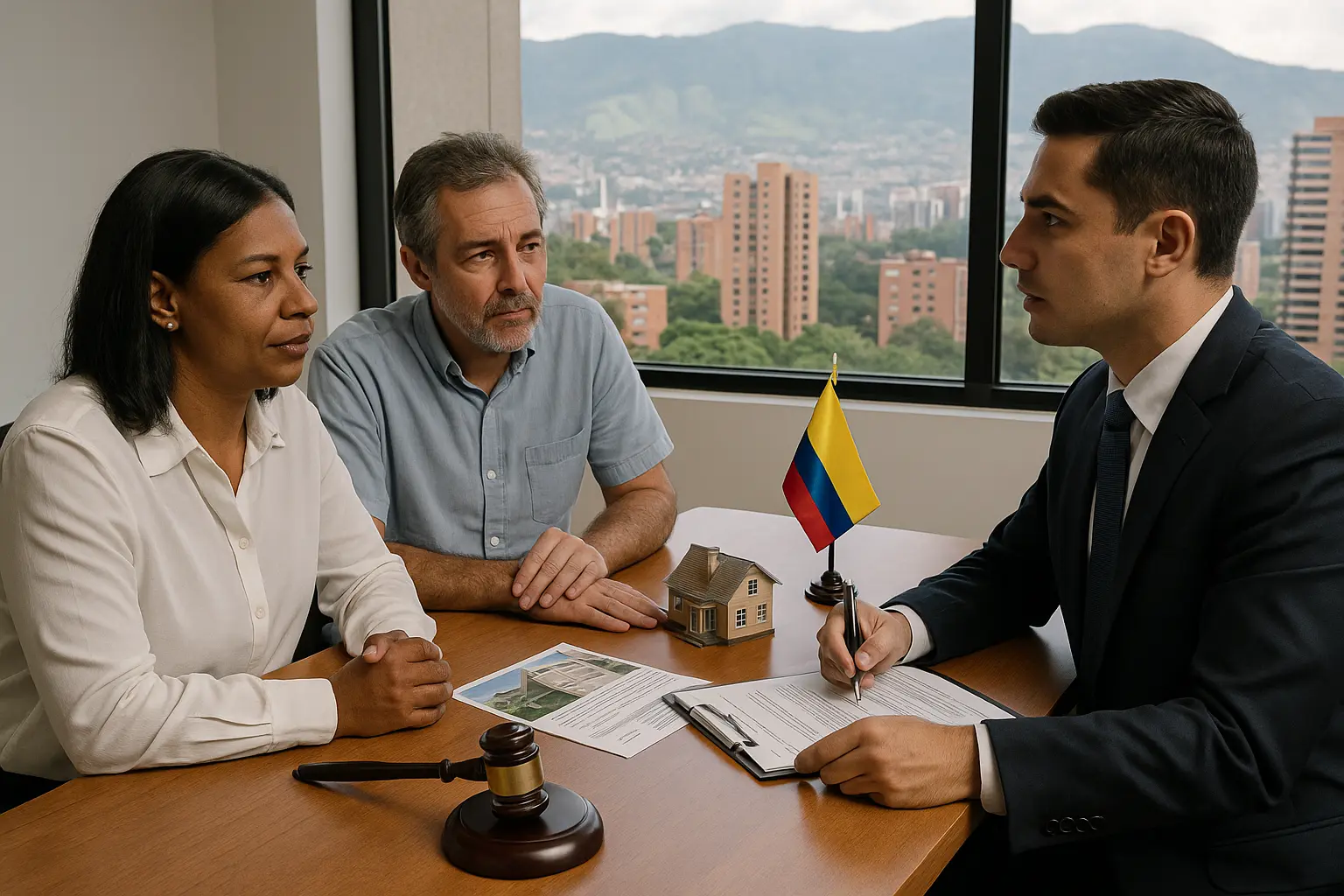If you’re planning to get married in Colombia, it’s essential to understand the legal framework that governs marriage in the country. Colombia marriage laws outline the rights, responsibilities, and procedures for couples—especially when one or both partners are foreigners. Whether you’re marrying a Colombian national, planning a destination wedding, or relocating permanently as an expat, knowing the legal requirements can save time, reduce stress, and help avoid costly mistakes.
This comprehensive guide explores everything you need to know about marriage in Colombia, from the legal types of unions to the documents required, registration steps, and real-life examples.
What Are Colombia Marriage Laws?
Colombia marriage laws refer to the set of legal regulations that govern who can get married, how the marriage must be registered, and what rights and duties arise from the union. These laws apply to both Colombian nationals and foreigners who wish to marry in Colombia.
There are two main types of legally recognized unions:
- Civil Marriage: Conducted by a notary and registered with the civil registry. This is the only form legally valid for governmental and legal purposes.
- Religious Marriage with Civil Effects: Recognized only if performed by an institution registered with the state and later registered with the civil registry.
Understanding these distinctions is crucial, especially for foreigners who want their marriage to be recognized in both Colombia and their country of origin.
Colombia Marriage Requirements
General Requirements for All Couples
To marry legally under Colombia marriage laws, both parties must meet the following criteria:
- Minimum Age: Both individuals must be at least 18 years old. If younger, written parental consent and a judge’s authorization are required.
- Identification:
- Colombians must present their cédula de ciudadanía.
- Foreigners must provide a valid passport with the appropriate visa or entry stamp.
- Single Status: Proof of being single is mandatory. This is typically provided via a sworn declaration or certificate of single status.
- Witnesses: Two witnesses (aged 18 or older) are required for the ceremony, each with valid identification.
- Civil Registry Registration: The marriage must be officially registered with the Colombian Civil Registry to be valid under the law.
Additional Requirements for Foreign Nationals
Foreigners marrying in Colombia must also submit the following:
- Apostilled and Translated Birth Certificate: Your birth certificate must be apostilled in your country of origin and officially translated into Spanish.
- Certificate of Single Status or Affidavit: Authenticated, apostilled, and translated.
- Divorce Decree or Death Certificate: If previously married, proof of divorce or spouse’s death is required.
- Valid Visa or Entry Permit: You must be legally present in the country during the application process.
These documents must be presented at the notary’s office or religious institution, depending on the type of ceremony chosen.
How to Get Married in Colombia: Step-by-Step Guide
Understanding the full process of marrying in Colombia can help ensure a smooth experience. Here’s a breakdown of the key steps under Colombia marriage laws:
Step 1: Document Preparation
Start by collecting all the necessary documentation, including identification, certificates of single status, and previous marriage records if applicable. Ensure that all documents from abroad are:
- Apostilled (for international validity),
- Translated into Spanish by a certified translator, and
- Authenticated, if required by your country.
Step 2: Choose Your Type of Ceremony
Decide whether you prefer a civil or religious marriage. If you choose a religious ceremony, make sure the officiating entity is authorized by the Colombian government and that the ceremony will be properly registered afterward.
Step 3: Schedule with a Notary or Religious Institution
Book an appointment with a notary public (for civil marriage) or with the religious institution of your choice. Submit all your documents in advance for verification and processing.
Step 4: Attend the Marriage Ceremony
On the appointed date, both parties and witnesses must be present with their identification. During the ceremony, the marriage contract is signed and, in civil cases, immediately registered by the notary.
Step 5: Register with the Civil Registry
Even if married religiously, you must register your marriage with the Colombian civil registry to ensure it has full legal recognition. Failure to do this may invalidate your marriage for legal purposes.
Step 6: Notify Your Country’s Embassy or Consulate (if needed)
Some countries require that you register foreign marriages with your embassy or follow specific procedures to have the marriage recognized at home. Check with your home country’s consulate in Colombia for further instructions.
Why Understanding Colombia Marriage Laws Matters
Legal Validity Across Borders: A properly registered marriage ensures that your union is recognized in both Colombia and your home country. This is vital for visa applications, dual citizenship, and family law matters.
Simplified Legal and Immigration Processes: Knowing the ins and outs of Colombia marriage laws can simplify your path to residency, joint property ownership, spousal benefits, and other essential legal processes.
Protection of Individual and Shared Rights: Marriage in Colombia confers various rights and obligations, such as inheritance, joint finances, and parental duties. Being aware of these protections allows couples—especially international ones—to plan and safeguard their future.
Common Mistakes When Navigating Colombia Marriage Laws
- Incomplete or Incorrect Documents: Many marriages are delayed due to paperwork issues—missing apostilles, outdated documents, or unverified translations. Triple-check everything or work with legal professionals for peace of mind.
- Not Registering the Marriage Properly: Failing to register a religious marriage with the civil registry can lead to it being unrecognized legally. Always verify that your marriage is officially recorded.
- Overlooking Legal Guidance: Trying to navigate Colombia marriage laws without legal help can be risky. Every case is different, especially for binational couples, and legal professionals ensure you don’t miss vital steps.
Navigating Colombia Marriage Laws with Confidence
Understanding Colombia marriage laws is essential for any foreigner or expat planning to marry in the country. From legal documentation to registration steps, every detail counts toward ensuring a valid, recognized, and protected union. The process doesn’t have to be overwhelming—especially when you have expert legal support on your side.
Need help with your marriage in Colombia? Colombia Law Connection specializes in assisting expats and international couples. Contact us today to receive personalized guidance and make your special day legally secure and stress-free.









